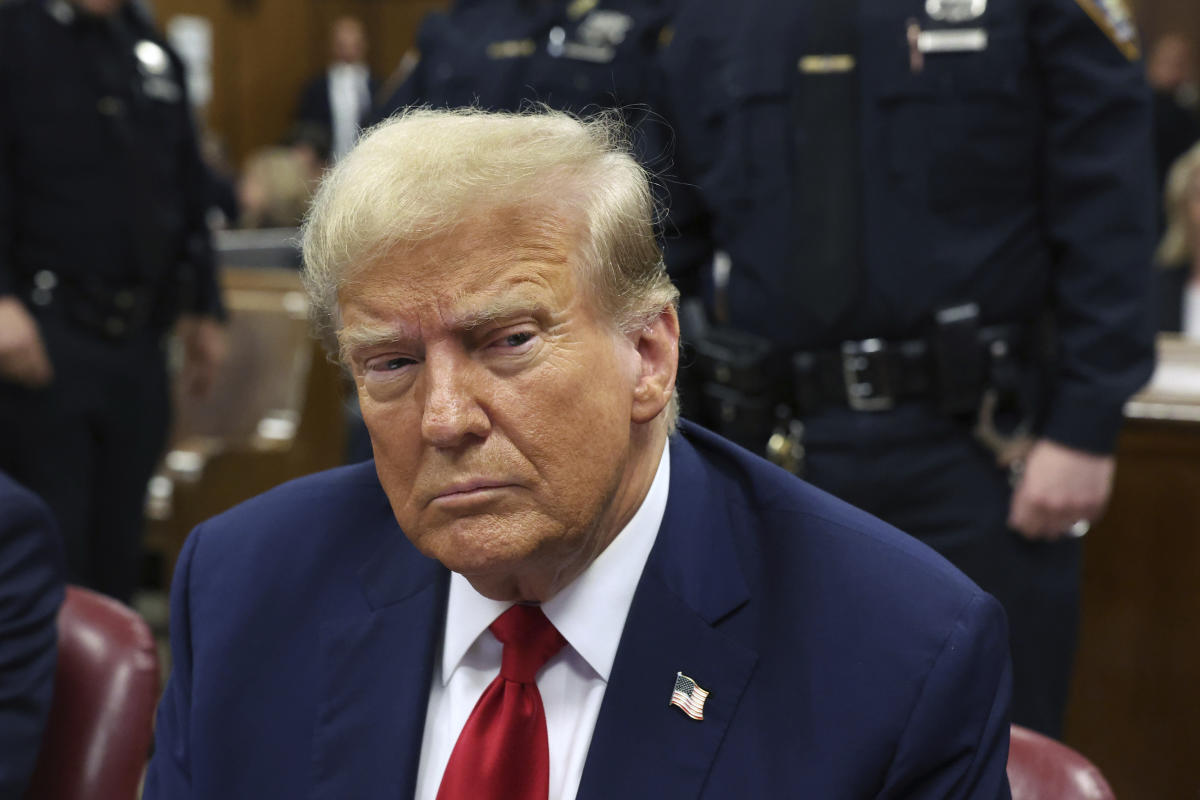While former President Donald Trump sat in Manhattan criminal court on Thursday for the seventh day of his hush money trial, the U.S. Supreme Court heard oral arguments regarding another criminal case against him — and whether he is immune from criminal prosecution for actions he took as president.
The Supreme Court’s decision will determine whether three of his other criminal trials can proceed in Washington, D.C., Florida and Georgia.
Conservative Justice Neil Gorsuch highlighted the historical significance of the case and what a ruling on presidential immunity means for the future. “We’re writing a rule for the ages,” Gorsuch said during the hearing.
While the justices seemed poised to rule that Trump doesn’t have blanket immunity, there are ways the high court could rule that could hand Trump a strategic win.
What Trump argues
Trump is asking the high court to decide whether he can claim presidential immunity in special counsel Jack Smith’s federal election subversion case for his alleged role in trying to overturn the 2020 election. Smith’s indictment of Trump in August 2023 includes both official and private acts of the former president.
Trump has pleaded not guilty to the four felony counts against him and wants the charges thrown out. He argues that he is immune from criminal prosecution because the actions he took were within the scope of his official acts as president.
What special counsel Jack Smith argues
Meanwhile, Smith wants the high court to dismiss Trump’s claims of sweeping presidential immunity. Smith argues that Trump’s actions are fair game for criminal prosecution because they were done for personal gain as a candidate to benefit his presidential campaign, rather than a president taking action for the country. “The effective functioning of the presidency does not require that a former president be immune from accountability for these alleged violations of federal criminal law,” Smith wrote in a brief to the high court.
Smith is also urging the court to prevent the former president from delaying a trial until after the November election.
Trump’s attorney D. John Sauer argued the former president’s case before the Supreme Court, while attorney Michael Dreeben argued Smith’s case.
Here are some of the key takeaways from Thursday’s landmark hearing before the Supreme Court.
Justices seemed to agree that Trump does not have blanket immunity
Based on the Supreme Court’s questioning, including by the court’s conservatives, the justices suggested that they want to make clear distinctions between official acts, which could entitle Trump to immunity, versus private acts, which likely would not.
Justice Clarence Thomas kicked off the line of questioning to Trump’s attorney about how the justices would determine what an “official act” is, while Chief Justice John Roberts posed a hypothetical about what happens if a president appoints an ambassador in exchange for a bribe.
“How do you analyze that?” Roberts asked. Sauer answered that it would be up to “the court’s discretion.”
Justice Sonia Sotomayor posed another hypothetical, asking: If the president ordered the military to assassinate a rival they view as corrupt, “is that within his official acts for which he can get immunity?”
Sauer responded that “it would depend on the hypothetical, but we can see that could well be an official act.”
Sotomayor stressed that in the hypothetical, the president would be doing it for “personal gain.” She pressed Sauer, saying, “Isn’t that the nature of the allegations here? … A president is entitled for total personal gain to use the trappings of his office — that’s what you’re trying to get us to hold — without facing criminal liability.” Trump’s attorney responded that the law does not “turn on the allegedly improper motivation or purpose” of the act.
In a notable line of questioning from Justice Amy Coney Barrett, she asked Trump’s attorney to agree or disagree with a characterization of private acts. He admitted that several of the claims involved in Smith’s case were private acts.
“So you concede the private acts don’t get immunity?” Barrett asked. “We do,” Sauer said.
Sauer’s acknowledgment of this means that Trump’s trial in Smith’s case could go forward, in part.
Smith proposed a backup for the case, writing in a legal brief, “Even if the court were inclined to recognize some immunity for a former president’s official acts, it should remand for trial because the indictment alleges substantial private conduct in service of petitioner’s private aim.”
If justices kick the case back down to lower courts, it could be a strategic win for Trump
During the hearing, Roberts slammed a lower court’s ruling that rejected Trump’s immunity claim.
“The court of appeals below, whose decision we’re reviewing, said, ‘A former president can be prosecuted for his official acts because the fact of the prosecution means that the former president has allegedly acted in defiance of the laws,’” Roberts said.
“It is the clearest statement of the court’s holding, which is why it concerns me. As I read, it says simply: A former president can be prosecuted because he’s being prosecuted.”
Roberts proposed sending the Trump case back to the court of appeals to define what exactly is an official versus private act. If the Supreme Court punted the case back to the lower court, it would likely delay Trump’s trial until after the November election, which would be a strategic win for Trump. If he is elected to a second term, a Trump-appointed attorney general could withdraw the federal charges.
What’s next
The Supreme Court could issue a ruling anytime between Thursday’s hearing and the end of the term in late June or early July.
Trump’s trial in Smith’s case originally scheduled to start on March 4 is on hold. The presiding judge over the trial said pretrial issues could take up to three months, and the trial itself could take up to 12 weeks, leaving little room for an outcome before the November election.
